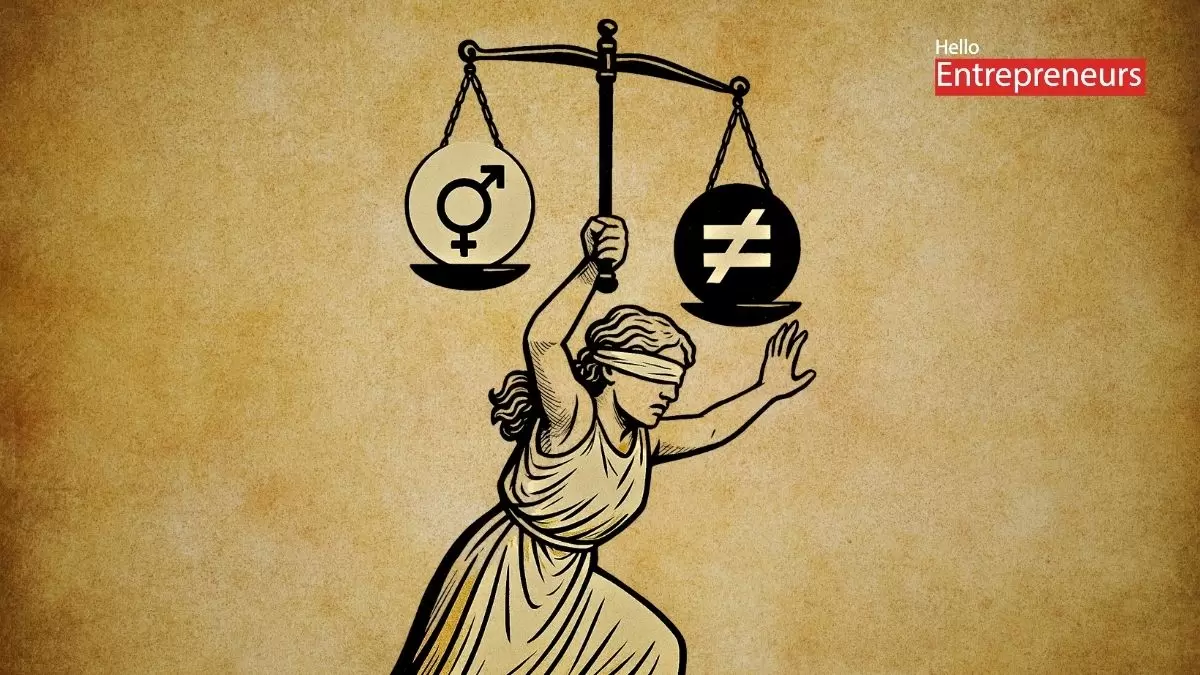Gender-Neutral Laws Are Great, But Try Running Them on that 1 System Built for Inequality

Surat: Laws pertaining to domestic violence are not gender neutral; indeed, this is a concern. Alimony rules? Technically neutral in terms of gender. Essentially? Still revolving around the conventional wisdom that says the man has to pay for a divorce, since apparently, evolution skipped fair financial planning.
No, not all laws are biased; as the wise sages of social media often tweet from the echo chamber of knee-jerk indignation. Some are only relics from a time when laws were enforced with prejudice and written with quills.
But let’s pause and try something fresh—an actual conversation—parking the hot takes and cancel culture.
“Should domestic violence laws be gender neutral?”
Short answer: Yes.
Long answer: Yes, without a second thought.
The old presumption that only men can be offenders and only women can be victims has aged like unrefrigerated milk. Studies conducted by international organisations such as the WHO and the National Crime Records Bureau have revealed that men do indeed experience domestic violence, though usually in silence. why? A smile, maybe a “man up” pep talk from someone who has never heard of emotional trauma, since admitting vulnerability as a man still earns you a side-eye.
And should the law fail to acknowledge male victims? Well, they get to suffer in high-definition silence, unrecorded, unsupported, and generally unacknowledged.
“But wait, didn’t feminism object to gender-neutral laws?”
Oh yes—time for the required feminist criticism.
Let me clear the air: feminism is not a monolithic Hogwarts House where you get sorted into one ideology with a cape and catchphrase. Feminism is a developing, flawed, but necessary system, just as democracy is. And as we wouldn’t blame “all of democracy” for every dishonest politician, we shouldn’t blame “feminism” for every tone-deaf activist who mistook equality with reverse supremacy.
Real feminism isn’t about replacing the oppressor; it’s about removing the concept of one altogether.
“So how do we know what’s ‘true’ feminism?”
Well, it’s not a BuzzFeed quiz or an honorary badge.
Treat others as people is a basic tenet.
Start with dignity; layer it with empathy; top it with justice; boom—you now have a working model of social equity. Though it is a crucial lens, gender shouldn’t be the only one on which our laws are written.
“But will gender-neutral laws really work in a country like India?”
Aha! Now we’ve reached the fine print.
The paradox is that imposing neutral laws on a profoundly unequal basis is like placing Wi-Fi in a cave—its progressive but essentially useless without infrastructure.
Let us not fool each other. Just ask the 4.7 crore pending cases to see how understaffed our police departments are, how overburdened our courts are, and how still largely stuck in Ramayana mode society conditioning is. Though the law says “equal,” the courtroom still sees your caste, attire, gender, and occasionally even your Instagram.
Indeed, the strong still will have better solicitors. Indeed, the downtrodden could still receive the shortest end of the legal stick.
That’s an argument for correcting the systems that understand laws, not for proving they should be equal.
But we already have rules covering dowry, rape, harassment,…
Exactly. Still, those problems continue, which suggests a more fundamental truth:
Laws are policy placebos, not magic wands.
They only treat the symptoms; they look good in government reports and election manifestos, but do not always prevent the disease.
We cannot arrest our way to reach equality.
Education, media literacy, gender-sensitive police, and—above all—a cultural reset teaching people how not to be horrible.
“What then is better than gender-neutral legislation?”
A society free of gender bias.
Where being assertive labels women as “too much,” being vulnerable does not cost men their masculinity. Where custody disputes lack a pre-written default based on the mother and father as visitors. Where the term “provider” isn’t a masculine burden, and the term “manipulative” isn’t a feminine quality.
Legal protection in this society is determined more by harm than by chromosomes.
When justice balances like a scale rather than swinging like a pendulum.
The Takeaway?
Let’s not pretend that laws by themselves can untangle millennia of patriarchy ingrained in our shared DNA. They are still tools, though, and tools count—especially if they are used properly.
Thus, not because men need “saving,” but rather because justice requires recalibration, gender-neutral domestic violence laws are absolutely necessary.
And if that bothers someone else?
Maybe it’s time they redefine what “equal” really means—not as a threat to one’s power, but as the power to safeguard everyone.
Let’s not be afraid to fix the frame just because we’re too used to the cracks.
Also Read: Dependence on Generational Support: More Than 1 Paycheck as a Powerful Stand – Hello Entrepreneurs
<p>The post Gender-Neutral Laws Are Great, But Try Running Them on that 1 System Built for Inequality first appeared on Hello Entrepreneurs.</p>


























